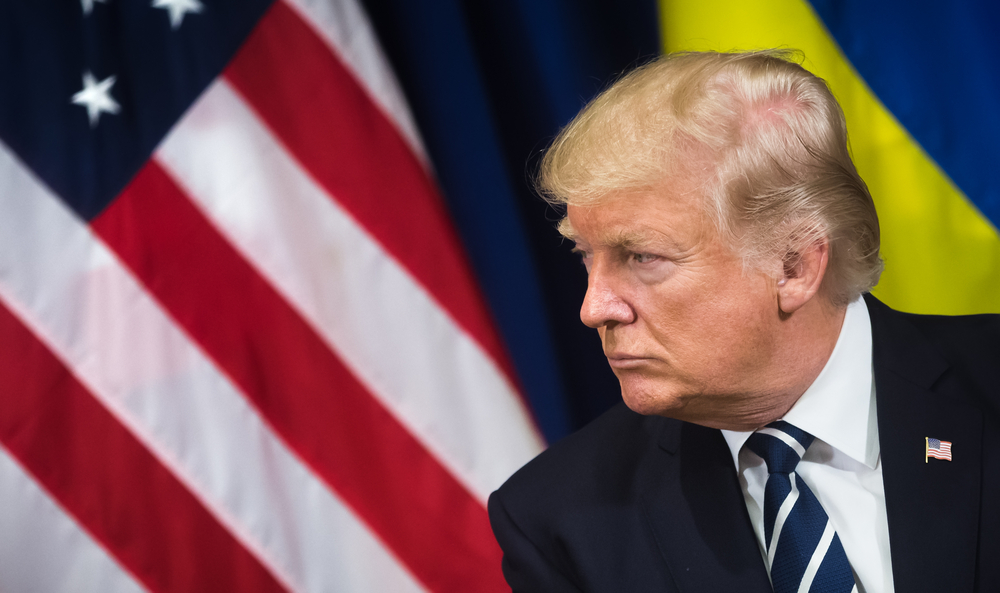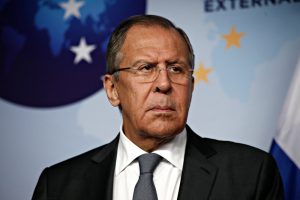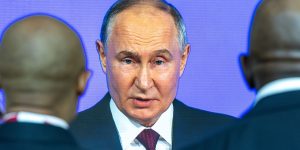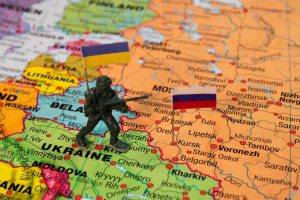Trump’s new strategy will focus on economic pressure, diplomacy, and negotiations.
Others are reading now
Donald Trump is prepared to intensify sanctions on Russia in an effort to end the war in Ukraine, his special envoy Keith Kellogg told The New York Post on February 6.
But Kellogg also acknowledged that both Ukraine and Russia will need to make concessions, hinting that negotiations—including possible territorial compromises—will be necessary to reach a lasting peace.
Kellogg criticized the current enforcement of U.S. sanctions, arguing they have not been applied with full force.
“On a scale of one to ten, the sanctions are about a three,” he claimed. “You could really increase the sanctions—especially the latest ones targeting oil production and exports.”
Also read
According to Kellogg, Trump understands leverage better than most and would use it to exert maximum pressure on Moscow.
Last week, Trump met with his national security team, including Vice President JD Vance and Treasury Secretary Scott Bessent, to explore a comprehensive strategy for ending the war.
“Solving the Russia-Ukraine war is really all hands on deck for the entire administration,” Kellogg said, emphasizing that military aid alone is not enough to bring the war to an end.
“You Can’t Kill Your Way Out of This War”
While reaffirming the importance of Ukraine’s military efforts, Kellogg warned against relying solely on battlefield victories.
“You can’t kill your way out of this war,” he said, pointing to Russia’s historical willingness to endure staggering troop losses in conflicts such as the Battle of Stalingrad during World War II.
According to Kellogg, a combination of economic, diplomatic, and military pressure is necessary to force Moscow to the negotiating table.
Trump has also suggested potential economic incentives for Ukraine, including access to its rare earth elements, which are vital to U.S. national security. However, Kellogg stressed that Trump’s priority is to “stop the killing—just stop it—and then go from there” in shaping future agreements.
Is Ukraine Ready to Make Concessions?
Kellogg hinted that territorial concessions could be part of a negotiated settlement, though he acknowledged that such compromises would not be popular.
“Very frankly, both sides in any negotiation have to give,” he said. “Is it going to be agreeable to everybody? No. Is it going to be acceptable to everybody? No. But you try to run this balance.”
He compared Trump’s potential role in brokering peace to Theodore Roosevelt’s mediation of the 1905 Treaty of Portsmouth, which ended the Russo-Japanese War.
“The czar of Russia and the Japanese were ready to walk out the door during negotiations, and Roosevelt got them together and said, ‘Both of you have to give a little,’ and they did.”
While Kellogg acknowledged that negotiations will be difficult, he insisted that diplomacy—combined with stronger economic and military pressure—offers the best chance for ending the war.
Kellogg’s remarks come as Trump positions himself as the candidate who can bring an end to the war should he return to the White House.
His approach contrasts with the Biden administration’s ongoing military aid strategy, which Kellogg dismissed as “not a real strategy, just a bumper sticker.”
Although Trump has floated potential deals with Ukraine, Kellogg emphasized that no formal peace plan will be presented at the Munich Security Conference, contradicting earlier reports.








